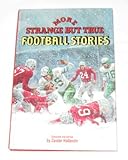China Welcomes Year Of The Snake
Language
Reading Level
Listen to Article
Today, over 1.3 billion people in China and millions of ethnic Chinese all over the world will celebrate the first day of the Chinese or Lunar New Year - the longest and most significant of all Chinese Festivals. Also known as the Spring Festival, it is a four thousand year-old tradition that began as a way to mark the end of the dreary winter season and beginning of spring.
While the dates of the 15-day festival that are determined by the lunisolar (a combination of lunar and solar) Chinese calendar differ each year, the traditions do not. This two week period that begins with a giant firework display, gives people the opportunity to make a fresh start in life - by forgetting old grudges, spring cleaning their homes and businesses and of course, buying new clothes. Since in the Chinese culture, red that symbolizes fire is believed to ward of bad luck and keep evil spirits at bay, it is the color of choice for clothing, as well as, the lanterns and scrolls that adorn homes.
Another great custom is hanging Chun lians or spring couplets that contain happy messages about the future. But best of all, is the tradition of the elders in the family gifting younger people with money tucked inside, red envelopes!
Of course no festival is complete without delicious food. Chinese New Year meals are delectable feasts, with each item signifying something special. Long uncut noodles represent a long life, while a chicken symbolizes family togetherness. Dumplings (resemble ingots, an ancient Chinese currency) and spring rolls (which look like gold bars), represent wealth and prosperity.
The New Year celebrations end on the day of the full moon with a Lantern Festival. On this day, many people go the temple to hang lanterns and also walk with them in a festive parade. The highlight of the celebrations is the dragon dance. Dragons made from silk, paper and bamboo are held up by men, who dance and guide the colorful animal through the streets.
As with all Asian festivals, this one too has some mythology attached to it - And while there are several versions, most revolve around a monster named Nian that terrorized villagers in China every night. In order to scare him away, a wise old man advised the people to light fireworks and bang drums, both traditions that are practiced till this day. In another version, god disguised as an old man, convinced the monster to leave the villagers alone and instead attack other monsters - However, before he took off with Nian, he advised the villagers to hang red lanterns and set off firecrackers on the last night of the year, so that the monster would never return again. Today, the word Nian doubles up as the word 'year' in Mandarin and people begin the new year by wishing each other 'Guo Nian' or 'passing of Nian'.
Another age-old tradition is naming each year after a different animal (a cycle that repeats every 12 years). Legend has it, that when Lord Buddha was alive, he called all the animals to celebrate the New Year with him - Only twelve came. He named a year after each one and said the people born in that year, would have some of the traits of that particular animal.
2013, is the Year of the Snake which includes anyone born in 1905, 1917, 1929, 1941, 1953, 1965, 1977, 1989, 2001 and of course, 2013. According to ancient Chinese mythology having a snake personality in the house is considered a good omen, because it means the family will never starve. People born in this year are believed to be keen, determined and just like the reptile, able to maneuver themselves out of any situation in both their personal and professional lives. They are also considered to be very sophisticated and calm and are extremely independent.
Though called 'Chinese New Year', the day is also celebrated in neighboring Asian countries like Thailand and Singapore. In Vietnam, the New Year is called 'Tet' and while the traditions are similar, the celebrations last for just seven days.
Xin Nian Kuai Le! (Happy New Year)
Resources: travelchinaguide.com, wikipedia.org,earthsky.org
Learn Keywords in this Article
463 Comments
- shirley4thalmost 12 yearsYear of the snake is cool, but a lot of people is born in the year of the goat. (even me).
- 22wg22almost 12 yearsi cant belive it was the longest most significant of all chineese festivals
- 1wg1almost 12 yearsThis article reminded me of when I was in kindergarten and our teachers were teaching us about temples in China.
- 24wg24almost 12 yearsI have heard of omens before. Here;s one that rhymes: When dew is on the grass,rain will never come to pass.
- 13wg13almost 12 yearsi wonder how the animals were picked
- 17wg17almost 12 yearsi think that mythology is really cool because people find myths and then they figure out if the myth is real
- 19wg19almost 12 yearsI can make an inference with my prior knowledge. Chinese people use fireworks for Chinese NewYear and fireworks are for special occasions like July 4.So now I know that Chinese New Year is a really special occasions for Chinese people
- 18wg18almost 12 yearsi wounder how they make decorate the dragon so good because i looks so real.they must of took a long time to finish the dragon.
- ivy wangalmost 12 yearsomg!!! the song!~ the new year gala! omg! i watched the whole thing its so funny!`
- ivy wangalmost 12 yearswoah! i used to do this before i went to america!~



